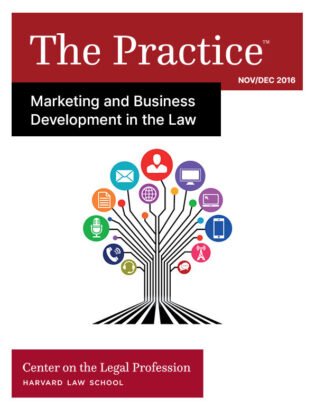Legal Compliance Checklist for Brain Retraining Academy Promotions
NeuroTechInsider.com is your trusted hub for reviewing the world’s most advanced, non-invasive brain tech devices—but even the most innovative brain retraining academies need to follow the law. If you’re promoting cognitive performance programs or wellness academies using tools like NeuroVIZR, CES headsets, or AVE therapy, this checklist ensures your campaigns remain compliant, credible, and sustainable.

Why Legal Compliance Matters in Brain Training Promotions
Let’s be real: the neurotech and brain wellness space is growing fast—and so is legal scrutiny. From the Federal Trade Commission (FTC) to GDPR regulators, there’s increasing pressure on brain-training providers to back up their claims and protect their users’ rights.
Non-compliance isn’t just about lawsuits—it can cost you consumer trust, lead to ad bans, or even shut down your academy’s digital presence.
Risk of Non-Compliance
- ⚠️ Regulatory fines from education and advertising watchdogs
- ⚠️ Lawsuits or takedowns from misrepresented claims
- ⚠️ Negative publicity or blacklisting by platforms like Google or Meta
If your marketing content makes claims about improving memory, reducing anxiety, or even treating ADHD, then buckle up—we’re about to break down the 10-point legal checklist every brain retraining academy needs.
1. Truth in Advertising: Avoiding Misleading Claims
Your copy may be catchy, but is it legally defensible? Any claim you make about your academy’s success rates, learning outcomes, or brain benefits must be truthful, not deceptive, and supported by evidence.
Substantiating Claims and Testimonials
- Don’t say “100% improvement in focus” unless you’ve got peer-reviewed research to back it.
- Use real, documented testimonials—and disclose if the user was compensated.
- Avoid cherry-picking only positive results. Represent the full range of experiences.
See the FTC’s Advertising Guide for the gold standard on substantiation.
2. Backing Claims with Scientific Evidence
Brain retraining is serious business—especially when you’re dealing with conditions like burnout, insomnia, or ADHD. If your site mentions outcomes like “reduced cortisol” or “gamma wave enhancement,” ensure there’s competent and reliable scientific evidence behind them.
Avoiding Medical Misrepresentation
Unless you’re FDA-approved or clinically licensed, avoid suggesting your program treats or cures any medical condition. Even language like “shown to help with autism” can cross the legal line without proper disclosures.
Pro tip: Use qualifiers like “may support,” “can contribute to,” or “participant-reported” rather than hard guarantees.

3. Data Protection and Privacy Best Practices
Collecting personal data from sign-ups, assessments, or newsletter opt-ins? Then you’re subject to data laws like GDPR (EU), FERPA (US), or state-level laws like CCPA.
- Get explicit consent for any data you collect.
- Be clear on how user data will be stored and shared.
- Never collect more than you need, and always offer an opt-out.
NeuroTechInsider Tip: Use clear opt-in checkboxes, a visible privacy policy, and regular audits to maintain trust.
4. Inclusive & Accessible Marketing Design
Compliance isn’t just about legality—it’s about inclusion. Your content should be accessible to users with visual, hearing, or cognitive challenges.
ADA Compliance and Inclusive Language
- Use alt-text for all images (like this one below)
- Include closed captions for your explainer videos
- Avoid gendered, ageist, or exclusionary language in your marketing

5. Licensing, Accreditation, and Regulatory Body Disclosures
If your brain academy is accredited or affiliated with any health or educational authority—say it clearly. If not, also be honest about that. Transparency builds trust and helps users understand what standards you follow.
Higher Education Opportunity Act (HEOA) & Local Guidelines
The HEOA governs truth in college-level advertising. While not all academies fall under it, following its principles can elevate your brand credibility.
Example: “XYZ Brain Academy is not a certified medical provider. All content is for educational use only.”

…To be continued with Sections 6–10 in Part 2.
Return to NeuroTechInsider.com for the latest in brain wellness tech and compliance guides.
6. Use of Testimonials, Endorsements & Influencers
In the neurotech space, **social proof is powerful**—but if you’re using influencers or endorsements to promote your academy or device-based training program, there are rules you absolutely must follow.
FTC Guidelines on Influencer Marketing
- Disclose material connections: If someone is being paid, gifted, or otherwise incentivized to promote your program, that relationship must be clearly disclosed.
- Authenticity is key: Endorsements must reflect honest opinions. Don’t script or edit to mislead.
- Don’t cherry-pick: Highlighting only extreme success stories while ignoring average outcomes can violate truth-in-advertising laws.
See the FTC’s Influencer Disclosures Guide for specific language examples and rules.
“As seen on TikTok” won’t protect you legally. If someone was gifted a device or enrolled in a program for free, that needs to be clear—especially on social posts and landing pages.
7. Digital and Social Media Advertising Rules
Running ads on Facebook, Instagram, YouTube, or Google? Each of these platforms has unique compliance rules, especially for **health-related content** and educational services.
Platform-Specific Best Practices
- Meta Ads: Avoid terms like “fix,” “cure,” or “100%” in ad copy for brain performance or health improvement.
- Google Ads: Must clearly show disclaimers for health services, especially if collecting personal data via landing pages.
- YouTube: Disclose sponsorships and include captions for all educational content.
Also, comply with global privacy laws for digital outreach:
- Offer simple opt-out and unsubscribe options.
- Respect “Do Not Call” registries for retargeting or follow-ups.
- Include privacy policy and terms of use on all lead capture pages.
Check each platform’s rules directly for updates:
8. Copyright, Fair Use & Content Licensing
From blog visuals to brainwave infographics, **you need rights to everything you publish or promote**. Using copyrighted or AI-generated content without a license could result in takedown notices—or worse, lawsuits.
Follow These Content Usage Rules
- ✅ Use royalty-free or Creative Commons–licensed images with attribution
- ✅ Buy stock images from verified platforms if needed
- ✅ For screenshots or research figures, follow fair use guidelines and link to original sources
Not sure if it’s legal? Ask before publishing. Content compliance is as critical as your messaging.
9. Transparent Financial Disclosures
If you’re charging for programs, offering financing, or advertising “free” trials—be clear and transparent. That means:
- Show full pricing breakdowns—upfront and unambiguous
- Explain refund policies and timelines clearly in user-facing terms
- Define eligibility for scholarships, grants, or access codes
Consumers are already skeptical of brain wellness claims. By being transparent, you build trust and **reduce refund or chargeback risks**.
10. Ongoing Training and Internal Monitoring
Legal compliance isn’t a “one-and-done.” Brain academies and cognitive device providers should set up regular checkpoints to audit marketing practices.
Best Practices for Team Compliance
- Quarterly review of all ad campaigns, landing pages, and testimonials
- Mandatory training for all new hires in marketing, sales, or customer support
- Maintain a shared compliance checklist (like this one) in your SOP toolkit
If you’re scaling your brain training platform, it’s worth bringing in a legal consultant or compliance expert to future-proof your operations.
Summary: Your Legal Marketing Compliance Roadmap
Before you publish your next ad, email, or Instagram post, run through this compliance checklist:
- ✅ Truthful and substantiated claims
- ✅ Scientifically backed outcomes
- ✅ Clear privacy policies and data control
- ✅ Inclusive and accessible content
- ✅ Accurate disclosures about licensing and accreditation
- ✅ Transparent use of testimonials and influencer promotions
- ✅ Adherence to social media and ad platform rules
- ✅ Legal use of all images, videos, and written content
- ✅ Honest financial and pricing disclosures
- ✅ Regular internal compliance audits
Compliance is not a barrier—it’s a brand advantage. Being honest, accurate, and respectful of your users’ rights isn’t just about avoiding penalties—it’s how the best brain academies and neurotech providers build long-term trust and loyalty.
If you’re building or promoting a brain retraining platform using devices like Apollo Neuro, Sensate 2, or NeuroVIZR—make compliance part of your marketing DNA.
Frequently Asked Questions
❓ Is it okay to use testimonials from beta testers or family members?
Only if you disclose the relationship or compensation, per FTC rules. Always clarify that results may vary.
❓ Can I claim my brain training program “treats” anxiety?
No, unless you’re FDA-approved or backed by clinical research that supports this specific use. Stick to language like “may support” or “has been studied for.”
❓ Do I need a privacy policy if I only collect email addresses?
Yes. Under GDPR and other laws, any personal data collection—even emails—requires a clear privacy policy and consent protocol.
❓ How do I make my landing page ADA-compliant?
Use high contrast colors, readable fonts, alt-text for all images, and keyboard-navigable layouts. Check out W3C’s Accessibility Guidelines for more tips.
Looking for more insights on launching a compliant, data-driven neurotech platform? Explore our in-depth reviews and marketing strategies at NeuroTechInsider.com.
